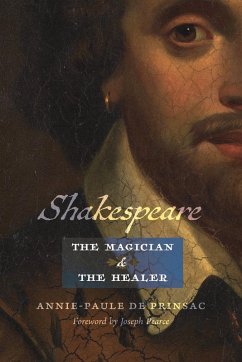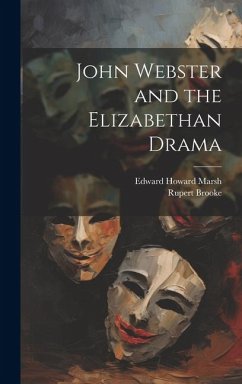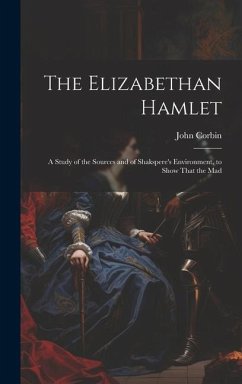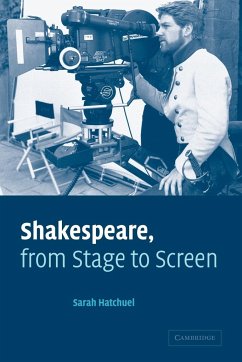
Shakespeare, the Magician and the Healer

PAYBACK Punkte
12 °P sammeln!
This book is the result of a life-long companionship with William Shakespeare. Annie-Paule de Prinsac has never been in doubt about his mannerism, whose many guises she reveals through close readings of selected plays. Such mannerism, however, in a kingdom torn by religious conflicts, violent oppression, and censorship raises questions. It seems out of step with the spirit of the Elizabethan Court, but also seems to belie the views of so many critics regarding his alleged social background and lack of education. How and why, then, did Shakespeare become a mannerist artist? In the end, it was h...
This book is the result of a life-long companionship with William Shakespeare. Annie-Paule de Prinsac has never been in doubt about his mannerism, whose many guises she reveals through close readings of selected plays. Such mannerism, however, in a kingdom torn by religious conflicts, violent oppression, and censorship raises questions. It seems out of step with the spirit of the Elizabethan Court, but also seems to belie the views of so many critics regarding his alleged social background and lack of education. How and why, then, did Shakespeare become a mannerist artist? In the end, it was his Catholic upbringing, long silenced or left aside by university scholarship, that provided the answer. Before becoming a man for all times, Shakespeare was a man of his time; and so, we cannot hope to understand his mind if we are blind to the Catholic dimension of his work, and the Italian flavor (French aroma at times as well) he chose to give to most of his plays. Clearly, the Bard had absorbed Counter Reformation strategies in art, and in tandem invented his own dramatic practice to preserve his now forbidden faith, while yet speaking the truth even so. The complexities of mannerism in his hands proved a most propitious way to teach and heal his fellowmen for over twenty years without ever having to change course. He so refined and elevated this ploy of dissimulation that he never had to betray the deep moral content of his plays. His aim, like Michelangelo's, certainly was "to move mortals to tears and devotion."














